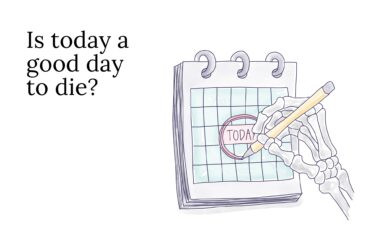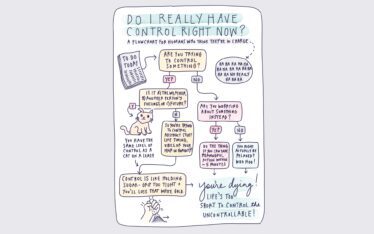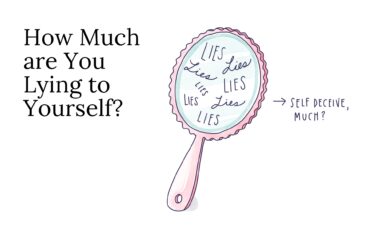In the “‘tis the season to feel grateful” spirit, let’s serve up a gravy-soaked story of gratitude. (I had you at gravy, didn’t I?)
I’ve thought a lot about this story—and not just because I spend so many of my hours writing/ talking/ daydreaming/ actually dreaming about the power of our mortality. My hope is that this story sticks with you, too, in a way that’s life-enhancing.
Here’s the email I opened from my friend Shelley:
Our very good friend John was diagnosed with stage four terminal cancer in 2019 and given about 18 – 20 months to live. The good news was that he was put on a regimen of drugs that would slow the progression of his cancer in such a way to keep him relatively comfortable and feeling pretty okay. The doctors said, when the drugs stop working, things will turn and you will go fast. Plain and simple. No heroic measures, no drama, just old-fashioned mortality.
We witnessed a most beautiful transformation for John, a life filled with gratitude and love rather than anger and bitterness. He accepted his fate and checked off some bucket list items early in the diagnosis while he still had strength and vitality, then later, invited people to come to the house to visit with him. He LOVED the visits, and people were so grateful for their time with him. Friends and family planned vacations so they could stop in Iowa City to have a day with John and his wife.
True to form, about 18 months later he was gone. But how he approached his death speaks very much to your article today about the gratitude meter shooting sky high when we face the end of life. Thanks for reminding me about our beautiful friend John and how he inspired us with his own gratitude for life.
We need to pause for a moment to take that story in, don’t we?
A few reflection questions
 Imagine you had 18 – 20 months to live, like John. How would you live that last year and a half?
Imagine you had 18 – 20 months to live, like John. How would you live that last year and a half?
- I encourage you to take the time to get specific. Instead of saying, “traveling,” can you pinpoint where? Instead of saying, “spend time with family and friends,” can you list names, and what you’d want to do with them? Instead of saying, “eat, drink, and be merry,” can you itemize what meals you’d want to prioritize? What bottles of wine you’d for sure want to open? What merry-inducing moments you’d be sure to fit in?
- Your answers to the above question are highly indicative. How can you do some of those things now—while you’re fortunate to not, in fact, have an imminent, terminal diagnosis? Of course you’re not going to drain your 401k to fund an 18-month-long party. But wait—if that’s what your inclination is to do, does that reveal you want a little more fun in your life . . . now?
- John apparently adopted a life full of gratitude under the shadow of death. What would you feel grateful for, if you were in his shoes? What might it take to feel and show that thankfulness today—without an 18-month deadline?
- How accepting would you be of your fate, if you had John’s diagnosis? As Shelley worded so beautifully, would your dying days be full of “gratitude and love rather than anger and bitterness”? How can you become more equanimous?
- What people in your life would you love to come out and visit you? If you knew you could pick from every cousin, every childhood buddy, every former colleague, every friend in the old neighborhood, every person you’ve ever encountered in your life . . . who would it feel heartwarming to reminisce with? To share a cup of coffee and a piece of crumb cake with? When was the last time you saw some of these special people on your list? Might it make sense to reach out and start making plans to see them—proactively—before you’re on your death bed? (Or before they’re on theirs?) Even if it’s a, “let’s meet in Lisbon in spring of 2025!”?
We are wired to keep trucking on with our busy day-to-day-ness, and in that whirlwind, we delude ourselves into thinking we’ll get to do the things that really matter . . . sooner or later. We believe visit with our high school friends “sometime soon.” We believe we’ll get to Auckland later, “down the road.” We believe we’ll be the type to practice gratitude “at some point.” We come by these beliefs naturally, and we simply have to find a way to override the system.
The truth is that we need the threat of mortality to prompt us to be grateful, to not take our loved/ liked ones for granted, to get out there and live like we mean it. That’s the system override: it’s memento mori, remembering we must die.
So whether you’d prefer the 16-year experiment I recently proposed, or John’s poignant tale here, take a beat to reflect on your impermanence. How would you live if your end was near? How does that compare with how you’re living now . . . like your end is far?
Let’s live the near version, and let’s be grateful for John from Iowa City for reminding us to do just that.

P.S.: Thank you for considering preordering a copy of my upcoming book, You Only Die Once: How to Make It to the End with No Regrets.
P.P.S.: Connect with me on Instagram for instant aliveness.
P.P.P.S.: Oh and just in case you missed it… I’d love you forever if you took 16 minutes out of your life to watch my TEDx talk!






